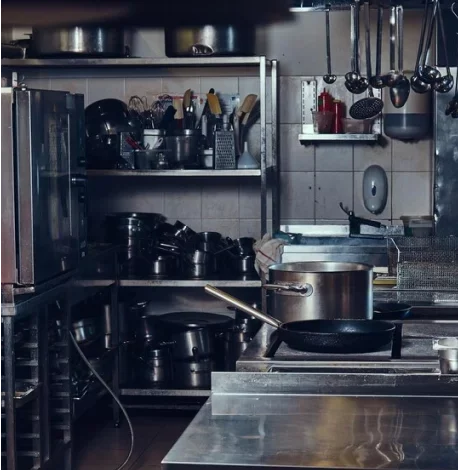Top 5 Common Commercial Kitchen Issues and How to Prevent Them
Top 5 Common Commercial Kitchen Issues and How to Prevent Them

Running a commercial kitchen can be a demanding task, with various challenges that can disrupt your operations. From equipment breakdowns to safety hazards, these issues can lead to downtime, increased costs, and even health code violations. Identifying common problems and implementing preventive measures can help keep your kitchen running smoothly and efficiently.
Equipment Breakdowns
Problem: Equipment breakdowns, such as malfunctioning ovens, refrigerators, or dishwashers, are among the most common and costly issues in commercial kitchens. These breakdowns can lead to significant downtime, impacting your ability to serve customers.
Prevention Tips:
- Regular Maintenance: Schedule regular maintenance checks with qualified technicians to keep your equipment in good working condition.
- Proper Training: Ensure that staff are trained on the correct use of equipment to avoid misuse that can lead to damage.
- Routine Cleaning: Clean equipment according to the manufacturer’s instructions to prevent build-up that can cause malfunctions.
Poor Ventilation and Air Quality
Problem: Inadequate ventilation can lead to excessive heat, unpleasant odors, and poor air quality, which can affect both staff comfort and food safety. Investing in expert commercial kitchen services could help deal with that.
Prevention Tips:
- Install Proper Ventilation Systems: Make sure your kitchen has a well-designed ventilation system that effectively removes heat, smoke, and grease-laden vapors.
- Regular Filter Changes: Change or clean filters regularly to ensure efficient airflow and reduce the risk of fire hazards.
- Check Exhaust Fans: Regularly inspect and maintain exhaust fans to ensure functioning properly.
Cross-contamination and Food Safety Issues
Problem: Cross-contamination is a serious issue that can lead to foodborne illnesses, harming customers and damaging your business’s reputation.
Prevention Tips:
- Implement Strict Hygiene Practices: Train staff on proper handwashing techniques and the importance of using gloves and hairnets.
- Regularly Clean Surfaces: Keep all surfaces, equipment, and utensils clean and sanitized to minimize the risk of contamination.
Inconsistent Food Quality
Problem: Consistency is key in the food industry, and consistent food quality can result in customer satisfaction and loss of business.
Prevention Tips:
- Standardize Recipes: Use standardized recipes and portion sizes to ensure consistent taste and presentation.
- Regular Staff Training: Continuously train staff on proper cooking techniques and quality control measures.
- Quality Ingredients: Source high-quality ingredients and maintain good storage practices to preserve their freshness.
Safety Hazards
Problem: Slips, trips, burns, and cuts are common safety hazards in commercial kitchens that can lead to employee injuries and lost work time.
Prevention Tips:
- Conduct Safety Training: Regularly train staff on kitchen safety protocols, including the proper handling of knives and hot equipment.
- Non-Slip Mats and Shoes: Use non-slip mats in high-traffic areas and ensure staff wear non-slip shoes to reduce the risk of falls.
- Clear Signage: Post clear signage in hazardous areas and ensure that emergency exits and first aid kits are easily accessible.
Conclusion
Preventing common issues in a commercial kitchen requires a proactive approach to maintenance, safety, and staff training. By addressing these common problems head-on, you can reduce downtime, maintain high food quality standards, and create a safer working environment for your staff. Implementing these preventive measures will not only save you money in the long run but also help you deliver a consistently excellent dining experience to your customers.
See also: The Cost of a Lice Removal Service: What Factors Affect Pricing?
FAQs
-
What is the most common cause of equipment breakdowns in commercial kitchens?
The most common cause of equipment breakdowns is a lack of regular maintenance and improper use by staff. Regular servicing and proper training can help mitigate these issues.
-
How can I improve ventilation in my commercial kitchen?
Improving ventilation can be achieved by installing a high-quality ventilation system, regularly maintaining exhaust fans, and ensuring the filter is cleaned clean or replaced regularly.
-
What are the best practices for preventing cross-contamination in a commercial kitchen?
Best practices include strict hygiene protocols, separating raw and cooked foods, regularly cleaning surfaces, and training staff on food safety measures.
-
How often should commercial kitchen equipment be serviced?
The frequency of servicing depends on the type of equipment, but generally, it should be serviced at least once every six months, with more frequent checks for heavily used items.


